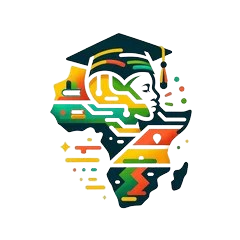How does culture influence teaching methods in Africa?
Africa is home to a wide diversity of languages, traditions, cultures, and systems of thought that contribute to the richness of the continent. This cultural wealth shapes both individual and collective identities and also has a significant impact on teaching and learning methods across the continent. As a result, schools go beyond mere instruction to become meeting points between regional cultural logics and pedagogical models inherited from Western educational systems. Understanding how culture influences educational systems not only fosters a more inclusive form of education but also helps develop teaching techniques tailored to African contexts.
A Pedagogy in Tension: Between Cultural Heritage and Foreign Educational Systems
An observation of educational systems in Africa reveals an undeniable reality: education is deeply shaped by colonial legacies. In many African countries, teaching is structured around Western languages and pedagogical models—often disconnected from local cultural realities. Yet culture, defined as the set of values, norms, representations, and modes of expression of a people, continues to shape how teachers transmit knowledge and how students absorb it (Amouzou, 2009).
For example, in African traditions and customs, orality has always been at the heart of knowledge transmission—whether recent or ancestral. This transfer of knowledge traditionally occurs through storytelling, songs, proverbs, and intergenerational narratives, valuing the wisdom of elders and the active listening of the youth. This idea is best captured in the famous quote by Malian writer Amadou Hampâté Bâ: “When an old person dies, a library burns”, highlighting the invaluable nature of elders' knowledge. In contrast, Western education emphasizes written knowledge and promotes values such as individualism and competition, which may conflict with the student’s cultural values (Corinus, 2008).
However, many initiatives have emerged to reconcile modernity and tradition in educational systems. For instance, in the Thiès region of Senegal, Wolof has been introduced into school curricula to better integrate local knowledge (Ndione, 2023). In Mali, community schools draw inspiration from local traditions, basing their pedagogy on values like solidarity, dialogue, and collective problem-solving.
Towards Rooted Pedagogy: Integrating Cultural References as a Lever for Effectiveness
Studies show that when students can relate to the examples, characters, or contexts presented in educational materials, learning becomes easier. Incorporating cultural references into the design of teaching tools and content is therefore crucial.
In several African countries, introducing vernacular languages in early education has helped young children grasp fundamental concepts more easily. This fosters greater confidence and smoother transitions to other languages. Countries like Mozambique, Senegal, and Tanzania have seen success in using this approach to include students from marginalized regions where monolingual educational systems had limited impact.
Moreover, when educational content is inspired by learners' everyday lives, students are more likely to engage with and retain information. For example, science, math, or geography concepts can be illustrated using local agricultural practices, artisanal skills, or concrete environmental issues. This model aligns with the work of Brazilian educator Paulo Freire, who argued that putting learners at the center of the educational process and valuing their immediate environment as a source of knowledge can be highly productive.
Lastly, traditional art forms—such as theater, music, and games—should be more widely integrated into teaching practices. Deeply rooted in local cultures, they can enhance oral expression and creativity among children while also helping to preserve cultural heritage that is often neglected by conventional education.
Conclusion
In Africa, teaching methods and the cultural contexts in which they evolve are inseparable. Although long influenced by Western models, African educational systems are increasingly reclaiming their cultural identities as tools for transformation and development. Recognizing the importance of culture in teaching is essential—not only because it facilitates learning, but also because it enables an education system rooted in values of inclusion, equity, and relevance to new generations. By increasingly integrating cultural references into pedagogy, African societies can move toward more contextually grounded and future-oriented educational systems.
Bibliography and References
Amouzou Essé. (2009). The Impact of Western Culture on African Cultures.
Corinus Véronique. (2008). Senghor and Sadji as Educators: African Orality Serving French Writing.
Ndione Augustin. (2023). The Introduction of Wolof in Senegalese Schools: The Case of the Village of Lélo in the Thiès Region.
Talbot & Arrieu-Mutel. (2012). Describing, Understanding, and Explaining the Teaching Practices of a High School Teacher.


